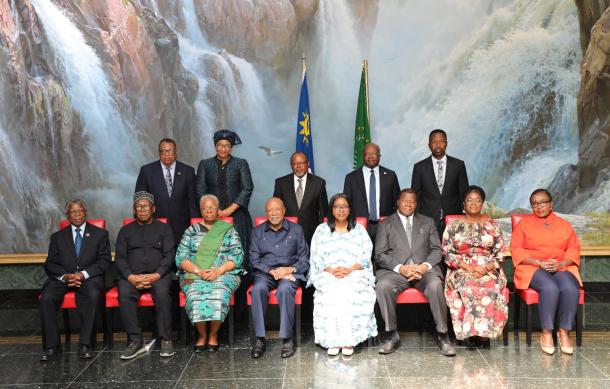
The government will consider the establishment of a permanent National Secretariat to coordinate the activities and programmes of the African Peer Review Mechanism (APRM) in Namibia.
President Nangolo Mbumba says the establishment of the Secretariat will ensure the full implementation of the APRM National Plan of Action.
President Mbumba launched the APRM Country Review Report at State House on Thursday.
"While launching the country review report is important, the measure of success will be how effectively Namibia integrates the recommendations of the country review report into existing sectoral strategies and plans. I, therefore, welcome the initiative by the Continental Secretariat to mobilise funding towards augmenting national resources in the implementation of the National Plan of Action. The government will consider the possibility of establishing a permanent National Secretariat to continue coordinating APRM activities and programmes in the country."
Namibia acceded to the APRM in January 2017 and, since then, has been reviewed twice.
The latest was in 2021, conducted by the APRM Continental Secretariat.
President Mbumba applauded the open and frank manner in which the discussions were carried out to reflect the diversity of views in Namibia's democratic society.
"The aforementioned processes have enabled Namibia to make tangible progress in mainstreaming the APRM into its governance architecture, having completed the targeted review report on youth unemployment since accession to the mechanism in 2017."
The APRM mandate aims to ensure that the policies and practices of participating AU member states, such as Namibia, are in compliance with the agreed political, economic, and corporate governance values.
The overall objective is in line with the attainment of AU Agenda 2063.
Namibia is being commended for demonstrating the highest political will in this regard.
The APRM Country Review Report, however, also outlines some persisting challenges, including inequality, difficult access to basic amenities in several remote localities, and gender-based violence, just to name a few.
Some of the recommendations are that the government accelerate the pace of decentralisation and augment the effectiveness of stakeholder participation mechanisms.
This can be conducted through the adoption of a sustainable bottom-up planning system to stimulate participatory development, the report states.





